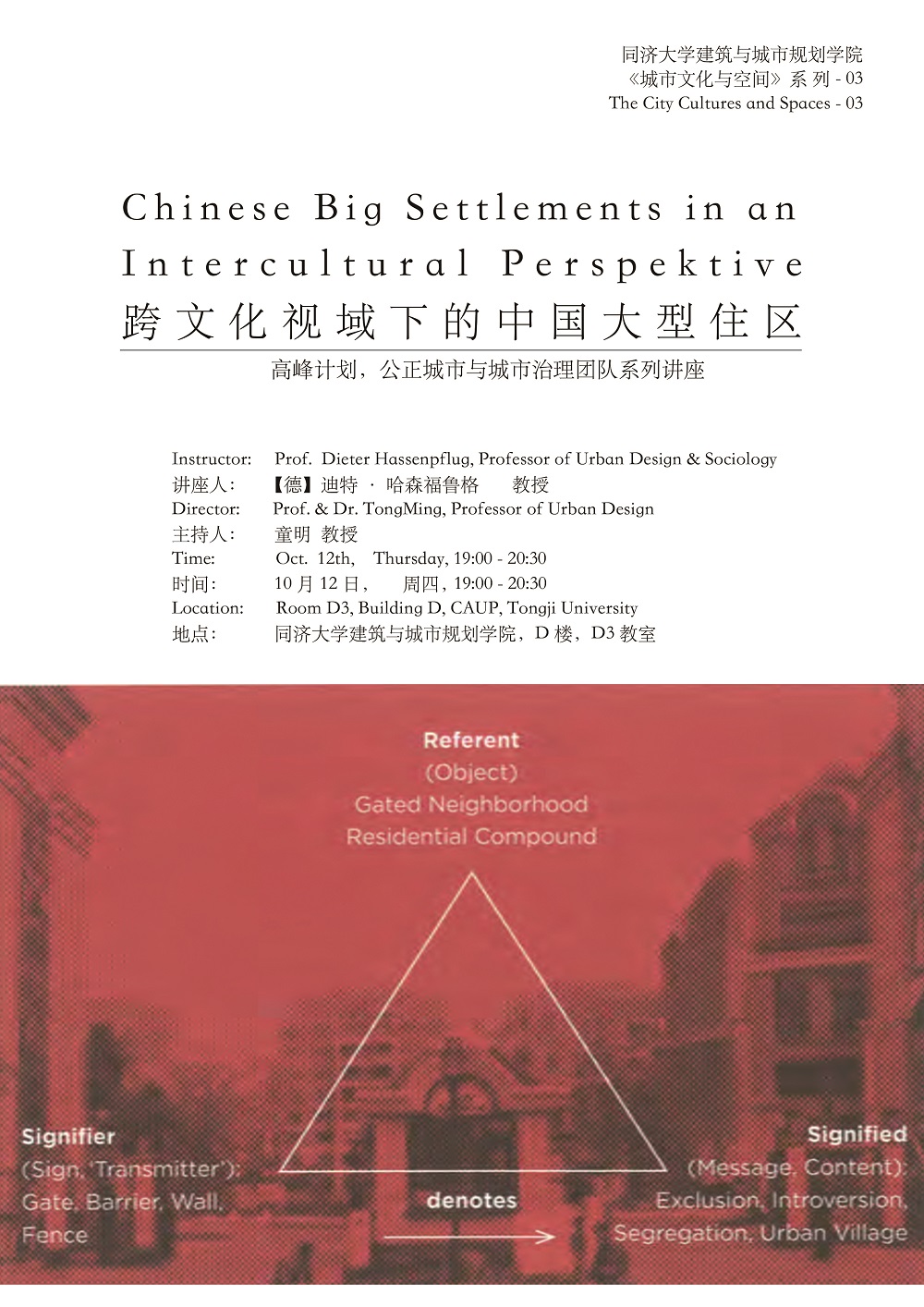新闻中心




Instructor:

Prof.Dr. Dieter Hassenpflug
Dieter Hassenpflug studied economics, sociology andphilosophy at the FU and TU Berlin and the Technical University Berlin.
Lecturer at TU Berlin, Berlin College of Economics,Kassel University, J. W. Goethe-University Frankfurt/Main, Bauhaus-UniversityWeimar, where he held the chair of Urban Sociology from 1993 to 2011.
Visiting scholar at many universities worldwide, primarilyin China at Harbin Institute of Technology (2003 - 2005), Shenyang JianzhuUniversity (2006) and Tongji-University Shanghai (2004 and 2007).
主讲人:
哈森普鲁格(Dieter Hassenpflug)曾在柏林自由大学(FU)、柏林工业大学(TU Berlin)和柏林技术大学学习经济学,社会学和哲学。曾在德国柏林工业大学经济学院、卡塞尔大学、法兰克福歌德大学,魏玛包豪斯大学担任讲师,并于1993年至2011年担任包豪斯大学城市社会学学术主席。他同时也是罗伯特-博世等基金会(Robert Bosch Foundation)的顾问委员。
Topic:
It is clear that when Westerners read the Chinese city, it is as if theywere looking into a mirror. This mirror improves their way of recognizingthemselves and the environment they inhabit. A dwelling in China is also simplya dwelling - and as such, similar to dwellings in Europe (and anywhere else acrossthe globe). However, Chinese dwellings also transmit their own messages,perceived as alien by Europeans. In order to understand it, we must know itsspatial code. If not,the danger exists oftransforming it into a “screen” for both subjective and merely superficialWestern projection. The city displays characteristics similar to textconsisting of letters, syllables, and words.
讲座主题:
当西方人在阅读中国城市时,他们就如同在照镜子。这面镜子有助于完善他们对自身及其居住环境的认知方式。为了理解中国城市,我们必须知道它的空间密码。否则,就很可能将其转换为一个“屏幕”,仅仅主观并肤浅地投射西方式的理解。城市所显示出的特征与由字母、音节和单词组成的文本相似,如要理解它就需要掌握书写这一文本所用语言的知识。